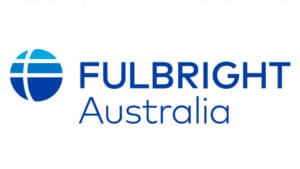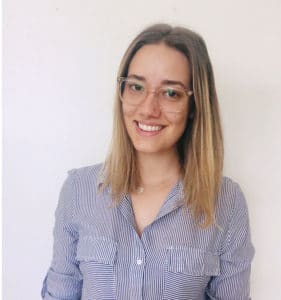After several years of pandemic delays, APU’s new Fulbright scholar has finally arrived.
Beth Madsen is a doctoral candidate at the University of Queensland, where she researches Indigenous education funding and policy within the Australian school systems. Her visit is funded by Fulbright Australia, part of the U.S. State Department’s prestigious academic exchange program.
 “What I’m hoping to do is look at Indigenous education policy and funding models [in the US], and do some comparative analysis with the work that’s happening in Australia,” she said of her fellowship goals.
“What I’m hoping to do is look at Indigenous education policy and funding models [in the US], and do some comparative analysis with the work that’s happening in Australia,” she said of her fellowship goals.
The USA and Australia have a few similarities in Indigenous education policy, she noted. For one, both countries share a colonial history that continues to affect education systems. There are also parallel concerns in terms of retention rates and enrollment rates. But she noted that in some ways, it appears that Alaska Natives are beginning to have a larger voice in education decisions compared to Australia, where Indigenous Australians are still fighting for constitutional recognition.
 Madsen is Aboriginal to Australia, which guides her passion for Indigenous education. She specifically chose APU to better understand its Tribally controlled model and federal recognition as an Alaska Native-serving institution. In Australia, she said, “we are seeing a move towards universities attempting to embed Indigenous knowledges in their curriculums, so it’s really interesting coming here, learning how the Tribally controlled model works, and how that might impact higher education curriculum.”
Madsen is Aboriginal to Australia, which guides her passion for Indigenous education. She specifically chose APU to better understand its Tribally controlled model and federal recognition as an Alaska Native-serving institution. In Australia, she said, “we are seeing a move towards universities attempting to embed Indigenous knowledges in their curriculums, so it’s really interesting coming here, learning how the Tribally controlled model works, and how that might impact higher education curriculum.”
Madsen will be in Alaska through July and plans to shadow faculty, meet students, continue her own research, and “really just throw myself into the university life,” she said. She will work most closely with Beth Leonard, research professor of Indigenous Studies at APU. In a nice full circle moment, Leonard is also a former Fulbright recipient and spent five months at the School of Māori Studies at Victoria University of Wellington, New Zealand in 2014.
